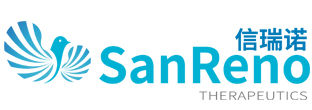预约演示
更新于:2026-02-08

Novartis AG
更新于:2026-02-08
概览
标签
肿瘤
神经系统疾病
其他疾病
小分子化药
单克隆抗体
非降解型分子胶
疾病领域得分
一眼洞穿机构专注的疾病领域
暂无数据
技术平台
公司药物应用最多的技术
暂无数据
靶点
公司最常开发的靶点
暂无数据
| 排名前五的药物类型 | 数量 |
|---|---|
| 小分子化药 | 256 |
| 单克隆抗体 | 42 |
| 腺相关病毒基因治疗 | 13 |
| 多肽偶联核素 | 12 |
| 治疗用放射药物 | 12 |
关联
447
项与 Novartis AG 相关的药物靶点 |
作用机制 BTK抑制剂 |
在研机构 |
最高研发阶段批准上市 |
首次获批国家/地区 美国 |
首次获批日期2025-09-30 |
靶点 |
作用机制 ETA拮抗剂 |
在研机构 |
最高研发阶段批准上市 |
首次获批国家/地区 美国 |
首次获批日期2025-04-02 |
靶点 |
作用机制 CFB抑制剂 |
最高研发阶段批准上市 |
首次获批国家/地区 美国 |
首次获批日期2023-12-05 |
5,643
项与 Novartis AG 相关的临床试验NCT06881823
NeoPSMA: A Phase I/II, Open-label, Multi-center Study of Neoadjuvant Treatment With [177Lu]Lu-PSMA-R2 (AAA602) and [225Ac]Ac-PSMA-R2 (AAA802) in Adults With Prostate-specific Membrane Antigen (PSMA) Positive High-risk Localized Prostate Cancer (HRLPC) Prior to Radical Prostatectomy and Pelvic Lymph Node Dissection
The purpose of this trial is to learn more about the effects of AAA602 and AAA802 in men with prostate-specific membrane antigen (PSMA) positive high-risk localized prostate cancer (HRLPC) before surgery to remove the prostate and lymph nodes present in the pelvis area. Lymph nodes are small structures near the prostate that help fight infections. These lymph nodes are removed during surgery because they are a site the disease can spread to.
开始日期2026-06-29 |
NCT07354074
A Phase II, Multicenter, Open-label, Single Arm Study to Evaluate the Safety and Efficacy of Asciminib in Pediatric Participants Newly Diagnosed or Previously Treated With Philadelphia Positive Chronic Myelogenous Leukemia in Chronic Phase (Ph+ CML-CP) With or Without Known T315I Mutation
The aim of this study is to support development of asciminib in the pediatric population (1 to < 18 years) with Ph+ CML-CP. The study will evaluate the efficacy and safety of asciminib in pediatric formulation (weigh-based dose, fed state) or adult formulation (fasted) in newly diagnosed and resistant or intolerant Ph+ CML-CP with or without T315I mutation.
开始日期2026-06-04 |
NCT07326709
A Randomized, Placebo-controlled, Double-blind Phase 3 Study to Evaluate the Efficacy, Safety and Tolerability of Votoplam in Participants With Huntington's Disease
The purpose is to assess safety and tolerability of votoplam and to determine whether votoplam slows disease progression in patients with early symptomatic Huntington's disease (HD) compared to the control arm.
HTT227 - current compound code (former code is PTC518 from PTC Therapeutics), HTT227 is Novartis code under Novartis sponsorship.
HTT227 - current compound code (former code is PTC518 from PTC Therapeutics), HTT227 is Novartis code under Novartis sponsorship.
开始日期2026-06-01 |
100 项与 Novartis AG 相关的临床结果
登录后查看更多信息
0 项与 Novartis AG 相关的专利(医药)
登录后查看更多信息
14,947
项与 Novartis AG 相关的文献(医药)2026-03-24·ANALYTICAL LETTERS
Simple Determination of Cystine in Artificial Urine and Drug Matrices Using Digital Image Colorimetry
作者: Zaman, Buse Tuğba ; Kustanto, Tülay Borahan ; Gel, Mehmet Selim ; Polat Korkunç, Ümmügülsüm ; Bakırdere, Sezgin
Smartphone-based digital image colorimetry was developed for the determination of cystine in pharmaceutical formulations and artificial urine samples.A lab-made colorimetric box was designed for capturing the digital images of sample solutions using a smartphone.The developed method employs a simple colorimetric method called nitroprusside test which specifically targets free -SH groups.Cystine was reduced to cysteine before the colorimetric test was applied.The color intensity is inversely related to the concentration of the analyte.The best linearity was obtained with the G color channel.Digital image processing was performed using the RGB Color Detector mobile application to obtain anal. data.The developed method exhibited good linearity in the range of 29.7-00.3 mg/kg.The limits of detection and quantification were 9.7 mg/kg and 32.3 mg/kg, resp.The percent recoveries were 104.2 ± 7.8% and 108.7 ± 4.6%, which proved the accuracy and applicability of the developed method.
2026-03-01·COLLOIDS AND SURFACES B-BIOINTERFACES
Biomimetic oral drug delivery: Translating nature’s design into therapeutic innovation
Review
作者: Madny, Muzaffaruddin Ahmed ; Yadav, Khushwant S
Oral drug delivery, the most patient friendly administration route offers convenience and compliance but faces formidable biological barriers. Enzymatic degradation, mucosal entrapment, efflux transport and extensive first-pass metabolism drastically reduce the effectiveness of sensitive therapeutics including peptides, proteins, nucleic acids and vaccines. Conventional formulations often fail to overcome these challenges highlighting the need for innovative approaches. Biomimetic drug delivery has emerged as a transformative strategy. By emulating structures and functions from cells, membranes, exosomes, viruses and gut microbiota these systems achieve immune evasion, mucus penetration, site-specific targeting and stimulus-responsive release. Such approaches improve formulation stability and in vivo absorption but also promise precise and patient centric therapies. This review provides a comprehensive overview of biomimetic oral systems highlighting their mechanisms, design principles and translational potential. Recent advances include cell membrane-coated nanoparticles for tumor targeting and immune modulation, exosome-inspired carriers for protein and RNA transport, virus-like particles (VLPs) for oral vaccines, and mucoadhesive or mucus-penetrating polymers modeled on pathogen strategies. Complementary pH, enzyme and redox-responsive platforms exploit gastrointestinal (GI) microenvironments to ensure controlled release. Emerging tools such as bioinspired computational modeling, 3D/4D printing, organoid-on-chip models and CRISPR/Cas-based platforms accelerate optimization and clinical translation. Although most technologies remain in preclinical development, early findings demonstrate superior pharmacokinetics, therapeutic efficacy, and safety over conventional systems. This article critically examines biomimetic oral drug delivery addressing advances and underlying mechanisms including regulatory considerations and future directions. They stand poised to form the foundation of next-generation precision therapeutics.
2026-03-01·Multiple Sclerosis and Related Disorders
A real-world study on persistence with ofatumumab in Canadian patients with multiple sclerosis
Article
作者: Grant, Rebecca ; Neish, Calum S ; Selchen, Daniel ; Magnussen, Claire ; Murray, Jillian
BACKGROUND:
In multiple sclerosis, disease-modifying therapies aim to reduce relapse rate and slow disease progression. An important component of successful disease control is treatment persistence, which is the time a patient remains on a therapy. The primary objective of this study was to examine persistence with ofatumumab in a real-world setting.
METHODS:
This was a retrospective cohort study using data from the Patient Support Program (clinicaltrials.gov number NCT06854341). Adults diagnosed with relapsing remitting multiple sclerosis who initiated ofatumumab were included. Persistence, defined as the number of days from ofatumumab initiation until discontinuation, was assessed from April 2021 to May 2024. Ofatumumab persistence was quantified by Kaplan-Meier estimates for discontinuation probabilities with corresponding 95% confidence intervals at 12, 24 and 36 months. Secondary objectives included a descriptive analysis of patients' baseline demographic and clinical characteristics, and their association with discontinuation.
RESULTS:
The PSP included a total of 6377 patients, of which 5436 patients met the inclusion criteria and had information to assess discontinuation. Persistence probability with ofatumumab was 96.94% at 12-months, 95.02% at 24-months, and 92.26% at 36-months post index. During this period, 167 patients (3.1%) discontinued ofatumumab. The most common reasons for discontinuation included side effects (0.9%), trying to conceive/pregnancy (0.5%), and patient request (0.5%).
CONCLUSION:
This study provides insights into real-world ofatumumab utilization among patients with multiple sclerosis and demonstrates that persistence with ofatumumab remained high over 3 years. These results complement data from controlled clinical trials and suggest that patients persist with ofatumumab.
22,303
项与 Novartis AG 相关的新闻(医药)2026-02-07
·微信
2025年全球药王宝座揭晓。礼来替尔泊肽以全年365亿美元,成为新晋“药王”。
这个结果并不意外。去年前三季度,替尔泊肽就已经展现出超越司美格鲁肽的趋势。在美国市场,替尔泊肽的涨势十分惊人,销售额有翻倍的增长,拿到第一算是预料之内。凭借替尔泊肽的强势增长,2025年,礼来实现全年651.79亿美元的营收,同比增长45%。礼来预计2026年,公司营收规模将在800至830亿美元之间。
诺和诺德正在为今后司美格鲁肽的销售焦虑,礼来这一边也在早做打算,希望在GLP-1的下半场继续保持优势。
2026年乃至以后,GLP-1的竞争无疑会进一步升级。根据财报,礼来已经向中、美等40多个国家递交了口服小分子药物Orforglipron的上市申请。诺和诺德的口服司美格鲁肽已经获批,双方必将迎来一战。2025年末,礼来已经宣布在美新建多家工厂,用于Orforglipron的生产。
1月底,礼来再宣布投资超过35亿美元在美国新建减肥注射剂和器械工厂,用于下一代靶向GIP、GLP-1和GCGR的减重药物retatrutide。根据后期临床试验,retatrutide最高剂量组68周内平均减重近29%,进一步搅局全球减肥药市场。
礼来这些年凭借GLP-1药物在制药界赚足了风头,表现了高度的进取心,不仅大肆兴建产能,满足市场需求,也快速灵活调整策略。2024年,礼来顺着替尔泊肽的消费属性,推出了直接面向自费消费者的平台lillydirect。礼来披露,LillyDirect平台已直连超100万名患者。面向中国,礼来一边把替尔泊肽推进了医保目录,一边不忘在线上线下零售端大举发力,不惜2折抢占市场。
在替尔泊肽之前,礼来并不算一家特别亮眼的公司,全球排名经常在十名开外。礼来抓住替尔泊肽带来的绝佳机会,荣登全球首家万亿美元市值的制药公司,创下了辉瑞、罗氏等都没达到过的高度,很难说只是运气。
巨头的思路一向都非常清晰:不一样的管线才有开发的价值,才有制胜的可能。“药王”的更替,一定程度上反映了跨国药企的策略:跨国药企们往往不倾向把产品线做广做大,而是孵化某一两个差异化品种。礼来押中了GLP-1,有运气的成分,但更重要的是对资产价值,以及公司运营方向的精准把控与调整。
像替尔泊肽这样的后来者,能够快速实现赶超,靠的是扎实的研发基础。2021年,替尔泊肽在头对头试验中,因优于司美格鲁肽的减重效果,自此一炮而红。随后,礼来绕开司美格鲁肽的脂肪性肝炎等适应症,优先探索睡眠呼吸暂停、心力衰竭,乃至斑块状银屑病等自免适应症的开拓,避开与司美格鲁肽直接对垒。
2025年,礼来的研发投入高达133.37亿美元,同比增长21%。即便像礼来这样大型的跨国药企,巨大的研发投入面前,也同样要在产品布局筛选上下功夫。
替尔泊肽大卖的同时,2026年初,礼来果断斩断了罕见病基因疗法LY3884963、 CD19单抗LY3541860以及一款核药的早期资产。这些都是礼来曾重金收购获得的品种,例如被砍下的核药AC-225-PSMA-62,是礼来在2023年用14亿美金收购Point Biopharma所得,这一举动被视作与诺华争夺核药的关键布局。
但AC-225-PSMA-62被砍去,礼来明确指出是未达到公司对后续开发设定的高疗效门槛。其他品种也皆因临床疗效优势不够明显而惨遭淘汰。某种程度上,礼来揭开的是药品开发残酷的生存法则:不是不好才被淘汰,不够好也会被放弃。
撰稿丨杨曦霞
编辑丨江芸 贾亭
运营丨晨曦
插图丨视觉中国
声明:健识局原创内容,未经许可请勿转载
爱尔医疗的另一桩生意:投资21家精神病专科医院
国内最大血管介入公司闯关创业板,集采后产品平均单价不降反增?恒瑞医药创新药获批临床,拟用于特应性皮炎
财报临床研究
2026-02-07
·微信
近年来,随着中国在全球医药创新版图中地位的快速提升,为应对中国市场变化、把握增长机遇,众多跨国药企都在持续加大在华投资。 近日,阿斯利康宣布,计划于2030年前在中国投资逾1000亿元人民币(150亿美元),用于扩大在华药品生产与研发布局。公司全球首席执行官苏博科表示,这笔重大投资开启了阿斯利康在华发展的新篇章。实际上,阿斯利康近年来一直在深耕中国市场,目前战略已开始显著转向与本土创新生态的深度融合和共同成长。据悉,截至目前,其已与石药集团、和铂医药等众多中国头部的生物科技企业构建了多元化、多层次的伙伴关系,合作范围涵盖从早期靶点发现到全球临床开发及商业化的全链条。同时,公司在中国市场的销售额也在不断增长。根据其2025年三季度业绩显示,前九个月总营收432.36亿美元,其中中国区收入52.79亿美元(+5%),占据阿斯利康全球市场份额的12%。罗氏制药2025年启动中国全新生物制药生产基地投资项目,总投资达20.4亿元;这笔投资将用于在沪新建生物制药生产基地,旨在加强罗氏在中国的供应链和本地化生产布局。新项目用地约53亩,建筑面积约2万5千平方米,预计将于2029年正式落成,2031年正式投产。该生产基地建成后,将成为罗氏制药在中国的第二个创新药物生产基地,与罗氏制药中国区总部现有生产基地协同运作,共同为中国患者提供创新药品。值得一提的是,罗氏制药全球副总裁、罗氏制药中国总裁边欣女士在2025进博会上明确表示,2026年罗氏将迎来在华100周年,公司将持续加码在华投入,深化布局,并与各方合作伙伴携手推动医疗创新,助力“健康中国2030”愿景的实现。辉瑞已深耕中国市场超30年,2024年其发布“辉瑞中国2030战略”。在2025年进博会上,辉瑞隆重呈现“辉瑞中国2030战略(2025—2030)”发布一周年的关键进展。同时,在现场,辉瑞中国区副总裁钱云表示,辉瑞在中国将持续加大创新研发投入,未来5年在华投资10亿美元,以期实现‘三倍速中国创新’。诺和诺德2024年宣布在天津投资约40亿元,用于无菌制剂扩建项目,计划于2027年建设完成。据介绍,此次投资建设的无菌制剂扩建项目是诺和诺德在天津发展进程中又一重要里程碑,将进一步提升在中国的产能,满足中国患者对创新药品的用药需求。无菌制剂生产将采用全球专业的隔离器技术,为制剂生产提供更高水平的无菌保障。据了解,诺和诺德目前在中国已构建起覆盖生产、研发与商业运营的全产业链布局。未来,其预计也将以“根植中国,全心投入”的姿态,进一步深度融入本土医药创新生态。
除了上述企业,开年以来还有不少跨国企业如赛诺菲、诺华等也已相继公布投资计划、扩产项目与合作金额,核心聚焦研发升级、前沿产能、本土创新资产并购、全链条本土化等。 从整体来看,当前跨国企业在中国的投资已从建工厂、扩销售,转向建研发中心、设投资基金、孵化本土创新。同时,与本土药企也正在形成 “竞合共生” 格局。业内预计,未来随着跨国药企“中国战略”的不断升维,其将深度融入中国创新体系,助力中国医药产业从“利润中心”被重塑为“创新与增长引擎”。
来源:制药网
思齐圈2026公开课全年预告出炉!
点击 阅读原文 了解更多
财报高管变更
2026-02-07
·微信
01. 背景简介
2025年1月,德国Würzburg大学医院核医学科的Constantin Lapa教授为通讯作者在《Journal of Nuclear Medicine》期刊上正式发表名为“Mass Dose Effects in FAP-Directed Imaging: Influence of Administered Dose of [⁶⁸Ga]Ga-LNTH-1363S on Image Quality”的研究论文。本研究核心是明确探究不同前体质量剂量(即未标记的冷药LNTH-1363S的量)对[⁶⁸Ga]Ga-LNTH-1363S的生物分布和PET图像质量的影响。
相关往期:
CDE:放射性体内治疗药物临床评价技术指导原则(2023年第9号)
177Lu-rhPSMA-10.1首次安全性和有效性数据!
JNM:RayzeBio(BMS)GPC3靶向核药临床研究新进展
02. 研究内容(部分)
新型FAP靶向PET示踪剂[⁶⁸Ga]Ga-LNTH-1363S含有白蛋白结合域,旨在延长体内循环时间并增强肿瘤滞留,但该结构也可能导致血池本底偏高,降低图像对比度从而影响诊断准确性,因此有必要探究其注射前体质量剂量对成像质量的影响。
本研究回顾性分析了39例恶性肿瘤患者接受不同前体质量剂量(30、75、90或100 μg)的[⁶⁸Ga]Ga-LNTH-1363S PET/CT检查结果,通过视觉评估和定量指标(包括病灶SUVmax、血池SUVmean及肿瘤与血池比值TBR)系统比较不同剂量下的图像质量与分布特征,以明确最优给药剂量。
本图和本表展示了同一患者在低前体质量剂量(30 μg)不同时间点的[⁶⁸Ga]Ga-LNTH-1363S 成像效果,暗示30 μg的前体质量剂量会导致[⁶⁸Ga]Ga-LNTH-1363S在血液中滞留时间长,产生高血池本底,影响图像对比度,且延迟显像对此改善有限。
本图展示了患有转移性乳腺癌伴腹膜转移的患者在不同给药质量剂量(30μg和100μg)下,在药物注射后60分钟的成像图像,直观地对比了不同给药质量剂量下的成像效果。暗示较高的给药质量剂量能够减少血液池中的放射性背景干扰,提高图像质量,更有利于肿瘤病变的检测和观察。
本表详细展示了不同给药质量剂量(30μg、75μg、90μg和100μg)对摄取值的影响。数据进一步证明较高的给药质量剂量有利于更清晰地显示肿瘤病变。
03. 小结
本研究结果表明,优化其给药质量剂量对于提高FAP靶向PET成像的诊断准确性至关重要,研究建议将标准剂量设定为90-100μg,以增强病灶检测效果并改善临床决策。
●【CDE核药简讯】:诺华
●新型CXCR4靶向诊疗核药
●吸收剂量指标预测¹⁷⁷Lu-DOTATATE治疗响应
●【CDE核药简讯】:先通、诺宇
声明:本文观点仅代表小核本人,欢迎批评指正;如需转载请注明来源;小核始终秉持客观中立原则,不发布主观评述或倾向性引导,建议读者结合原文及多方信息独立研判。
小核 | xiaoheshuoheyao777(微信)
Copyright © 小核说核药 All Rights Reserved.
100 项与 Novartis AG 相关的药物交易
登录后查看更多信息
100 项与 Novartis AG 相关的转化医学
登录后查看更多信息
组织架构
使用我们的机构树数据加速您的研究。
登录
或

管线布局
2026年02月09日管线快照
管线布局中药物为当前组织机构及其子机构作为药物机构进行统计,早期临床1期并入临床1期,临床1/2期并入临床2期,临床2/3期并入临床3期
药物发现
42
148
临床前
临床申请批准
1
51
临床1期
临床2期
70
16
临床3期
批准上市
119
1030
其他
登录后查看更多信息
当前项目
| 药物(靶点) | 适应症 | 全球最高研发状态 |
|---|---|---|
盐酸伊普可泮 ( CFB ) | 免疫球蛋白a肾病 更多 | 批准上市 |
二甲基亚砜曲美替尼 ( MEK1 x MEK2 ) | BRAF V600E阳性黑色素瘤 更多 | 批准上市 |
甲磺酸达拉非尼 ( BRAF x CRAF ) | BRAF V600E阳性黑色素瘤 更多 | 批准上市 |
琥珀酸瑞波西利 ( CDK4 x CDK6 ) | 转移性乳腺癌 更多 | 批准上市 |
尼洛替尼 ( CSF-1R x DDR1 x c-Kit ) | 费城染色体阳性慢性粒细胞白血病 更多 | 批准上市 |
登录后查看更多信息
药物交易
使用我们的药物交易数据加速您的研究。
登录
或

转化医学
使用我们的转化医学数据加速您的研究。
登录
或

营收
使用 Synapse 探索超过 36 万个组织的财务状况。
登录
或

科研基金(NIH)
访问超过 200 万项资助和基金信息,以提升您的研究之旅。
登录
或

投资
深入了解从初创企业到成熟企业的最新公司投资动态。
登录
或

融资
发掘融资趋势以验证和推进您的投资机会。
登录
或

生物医药百科问答
全新生物医药AI Agent 覆盖科研全链路,让突破性发现快人一步
立即开始免费试用!
智慧芽新药情报库是智慧芽专为生命科学人士构建的基于AI的创新药情报平台,助您全方位提升您的研发与决策效率。
立即开始数据试用!
智慧芽新药库数据也通过智慧芽数据服务平台,以API或者数据包形式对外开放,助您更加充分利用智慧芽新药情报信息。
生物序列数据库
生物药研发创新
免费使用
化学结构数据库
小分子化药研发创新
免费使用


